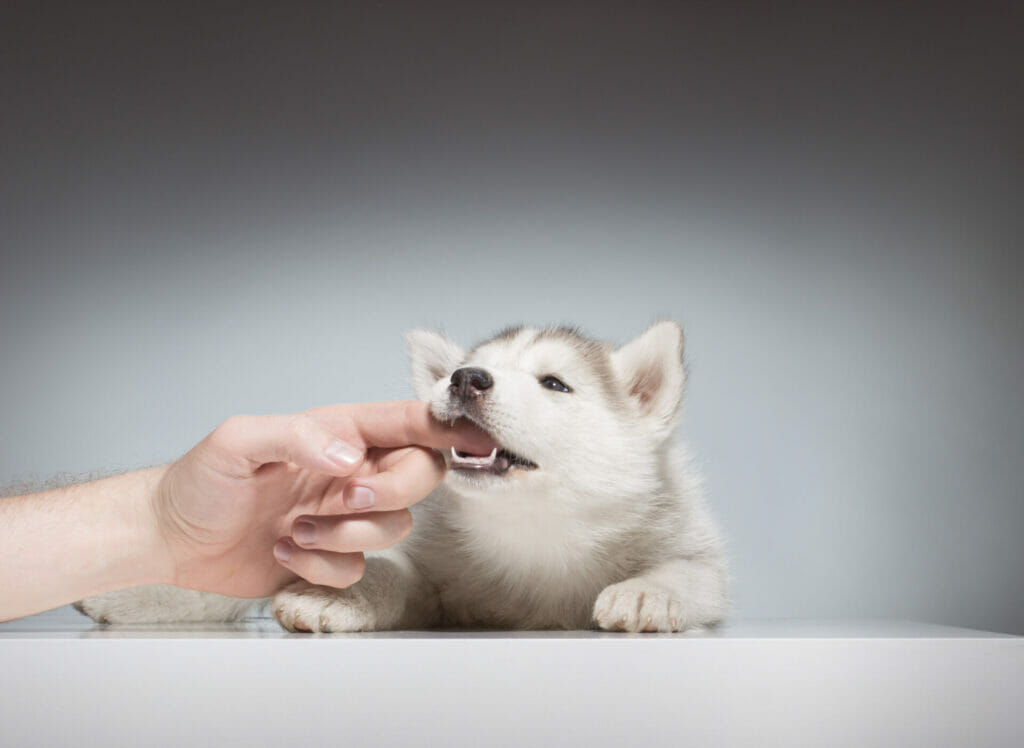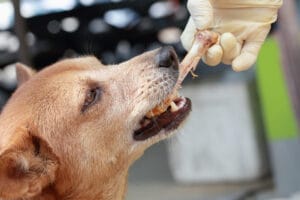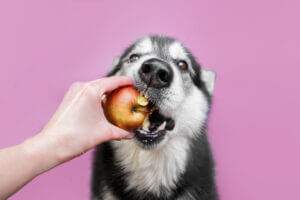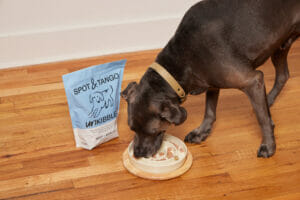Why Is My Puppy Biting Me? If you’ve ever owned a puppy, you’re probably familiar with the situations when your puppy bites you. You try to get in their face, and they bark and growl at you. Their canines are long, sharp, and pointy – they look a lot like swords. Yes, if it weren’t for the fact that puppies don’t know how to use them properly (lest humans get hurt), I would take the analogy further,” Spikes! Swords! Whoa!”
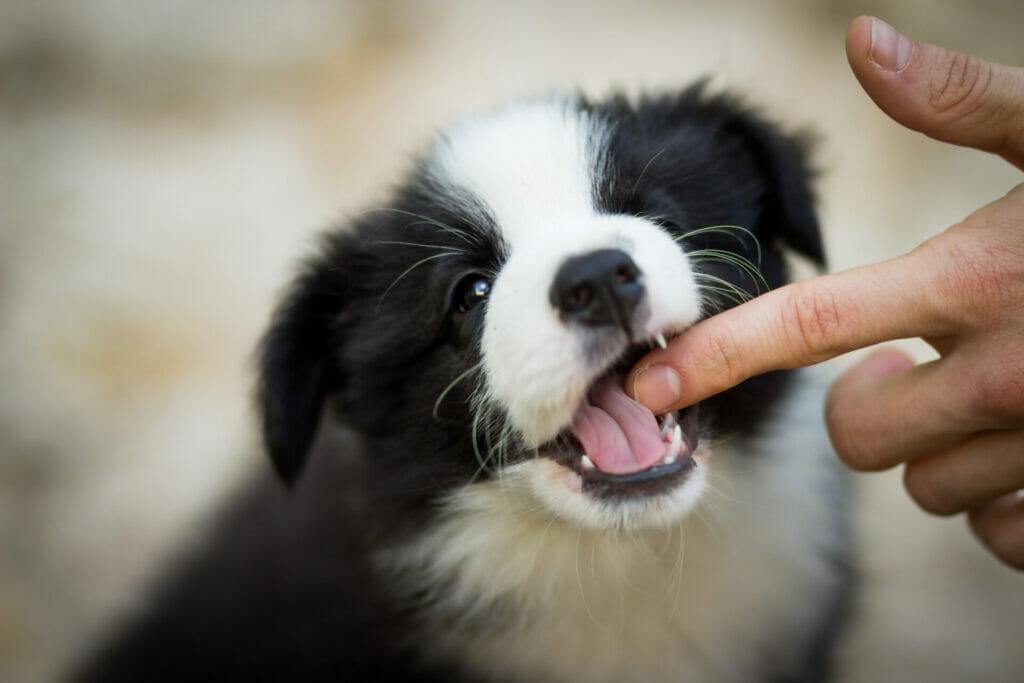
All this seems cute and fun, but wait until they cross the 7 weeks mark. That’s when things get a bit out of hand. The bites hurt, teeth sink, and cries follow. So the next your pup bites you, and you are in need of answers, this article can surely help you out.
Puppy Biting: They Are Exhausted
That is one of the most common reasons a puppy might be frustrated and bite its owner. Most puppies need sleep, which averages around 16-18 hours daily. Like human toddlers, puppies get cranky quickly and can make a fuss if they don’t get their naps.
You can create a strict sleeping schedule and ensure no distractions around that could disturb the young pup’s sleep. Create a proper sleeping place that’s cozy and comfortable to sleep in, but don’t isolate it completely. Young puppies have the tendency to cry if they are all alone and can easily get scared. That can not only disturb their sleep cycle, but it can manifest as biting in young pups.
Puppy Biting: Play Behavior Is Natural
Puppies are born with a natural instinct to bite. They start biting other puppies and people at a very early age, but it’s not something that will become an issue for them as they grow up. Biting is actually part of play for puppies and can be easily ignored if you’re patient with your pup (and don’t punish him).
Puppy Biting: Perhaps It Doesn’t Like Being Petted
If your pup bites you or nips at you while you’re petting them, this is an expression of their displeasure with the situation. Your pup might be frustrated, or there may be a lack of sleep. The reasons could be innumerable. But don’t take it personally!
If your dog doesn’t like being petted and doesn’t seem to understand that he’s supposed to enjoy it, there are some things you can do to make it more enjoyable for him:
1) Don’t pet him if he’s sleeping or playing with another dog; these are signs that he doesn’t want contact from you.
2) Try holding your hand in front of his face instead of behind his head so that he has less opportunity to nibble on your fingertips. That will also help curb tugging by keeping him from pulling on his leash when he wants out of his crate or play yard.
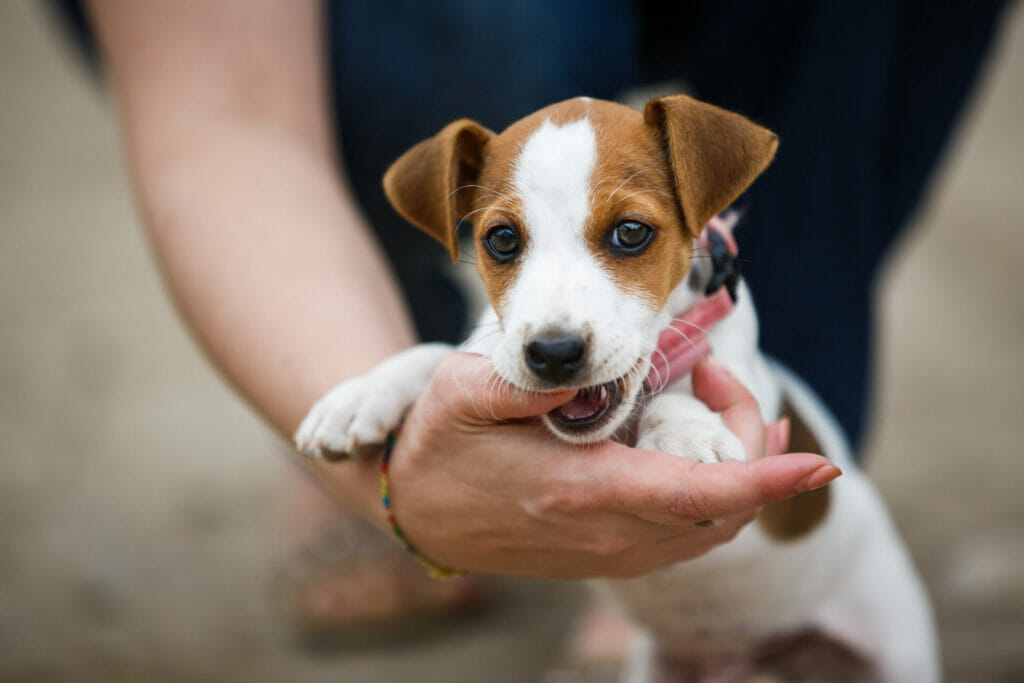
Puppies Start Biting Things Early On
Puppies start biting things around five or six weeks of age. That is a natural part of play for puppies, and they will bite anything they can get their teeth on, including your hands and arms.
It’s essential to keep an eye on your puppy at this time so that you can prevent any serious injury from occurring.
Puppies Bite Because They’re Teething
Teething is a normal part of puppy development and can cause pain and discomfort for your pup. It’s also one of the reasons why puppies bite!
Teething can make dogs more aggressive because they’re trying to get rid of the discomfort in their mouth. If you notice that your dog is biting more often than usual as it ages, this could indicate that they are teething.
Biting Is An Important Part of Play For Puppies & Shouldn’t Be Discouraged
Biting is an important part of play for puppies and should not be discouraged. Puppies learn bite inhibition from their littermates, as well as from other adult dogs in their lives. If you don’t allow your puppy to bite and growl, he won’t know how to use his teeth in a fun way!
Puppies need to play with each other but not too hard—they must understand the rules of the game between humans and other animals: no biting!
Conclusion
Remember that it’s okay for puppies to bite and play with their littermates. The best way to stop the behavior is by ignoring it, not scolding your puppy, or taking away toys or other things that are important to him.
If you find yourself getting upset about your puppy’s biting tendencies, talk about it with a friend who has experience with dogs so they can help you understand why this is happening and how to manage it.


